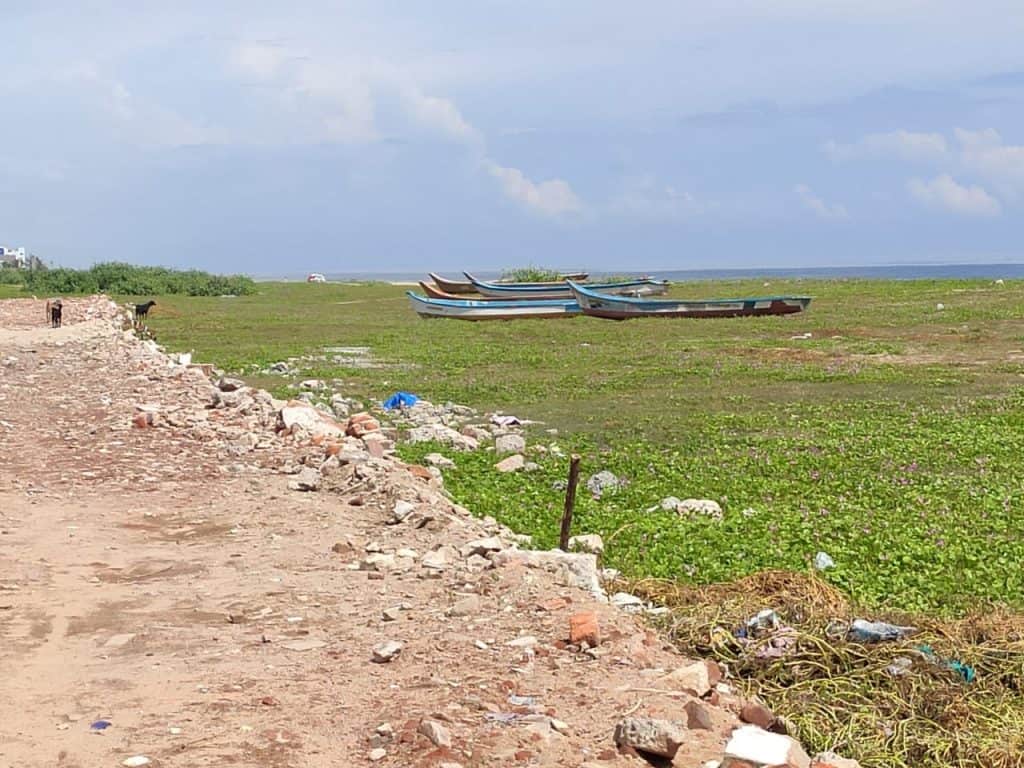Opening a hornet’s nest among the community, the city corporation has declared recent construction by fishermen around Thiruvanmiyur beach in Chennai as encroachments. Several additional structures have been constructed close to the beach, by the fishermen residing in the fisher-colony near Kuppam Beach Road, in the interest of better mobility and livelihood.
“We received a lot of complaints from the residents of Thiruvanmiyur,” says K.B. Vijayakumar, Regional Deputy Commissioner at Greater Chennai Corporation (GCC), Adyar. “When we enquired, we found shanties with temporary roofs and a road built within 200 metres from the sea belt, which comes under Coastal Regulation Zone.”
Acting on residents’ concerns for the environment, a complaint was filed by the GCC in mid November with the Thiruvanmiyur police station. “The residents were distressed by groundwater turning saline due to the construction. However, police intervened and stopped it on time. An investigation is underway,” said a police official.
According to residents of the neighbouring beachside bungalows, the loss of aquifers (the rocks under the ground which hold water) will allow seawater intrusion and affect water supply in their houses. It was a violation of CRZ laws, Vijayakumar said.
The fishermen residing in the area for more than five generations have opposed this move. According to their local body Vembadi Amman Koil Menevar, these developments (the recent construction) were the need of the hour.
“The new road will provide better connectivity, allow access to the fire brigade and ambulance in times of emergencies,” said Jaya Kumar, president of the local body and the Coastal Community Production Movement, referring to a series of fire incidents in the past.

The construction of a road for better access to the community has been stopped following complaints of CRZ Rules violation. Pic: Sukriti Vats
Coastal regulatory laws violated?
“The structures built on the beach are temporary shanties with only bricks put together. They do not breach any CRZ laws as per the new guidelines by the Central government, which allow for such structures to be built within 50 metres of the beach,” he added.
Another fisherman R. Vijay, living in the colony for more than 20 years, argued that the new huts were merely sheds for fishing nets, which made their work easier and cannot endanger the sea in any way.“ It’s only the sea that harms us, when a strong tide comes,” he said.
This silent dispute between the fishermen and the residents represented by the Corporation is based on different readings of the 2018 amendment to CRZ laws. A lawyer on condition of anonymity said, “The area lying in CRZ II (urban region that has been developed up to the shoreline) is permitted to have certain structures within 20-50 metres from the coastline, mainly for tourism purposes. However, it remains largely ambiguous about the fate of the fishers.”
Environmental activist Nityanand Jayaraman called out the Corporation’s bias in siding with the affluent communities. According to him, they were the ones encroaching and destroying the aquifers through borewells operated by their mushrooming dwellings across the beach.
“The government is legally bound to provide for long term housing along the coast for fishermen as per CRZ laws. Instead, it has stood by non-fishermen and illegal builders. If this action of the fishermen is not acceptable, let the corporation acquire land in the vicinity of the sea and provide for long-term housing for the fishers,” he said.